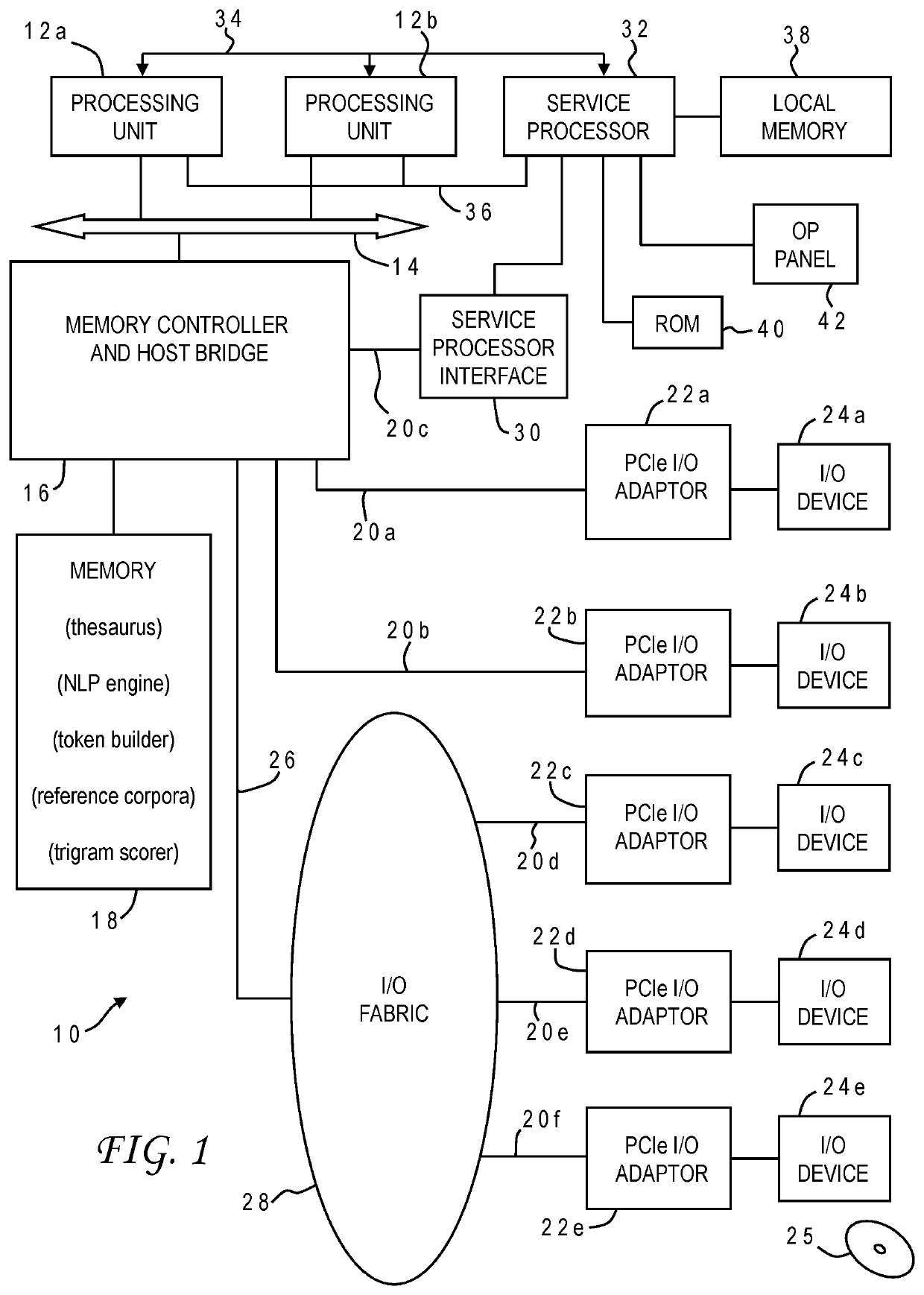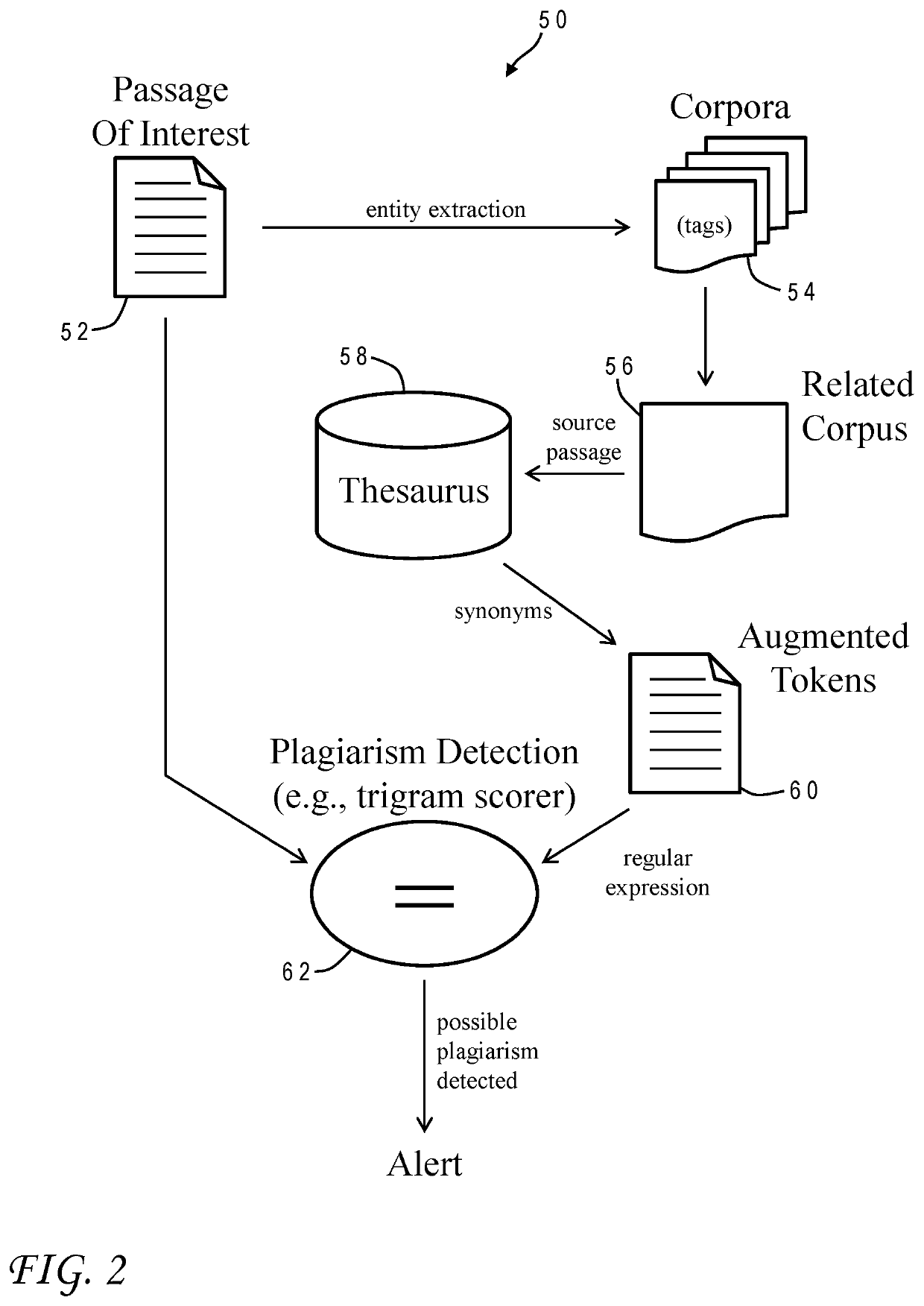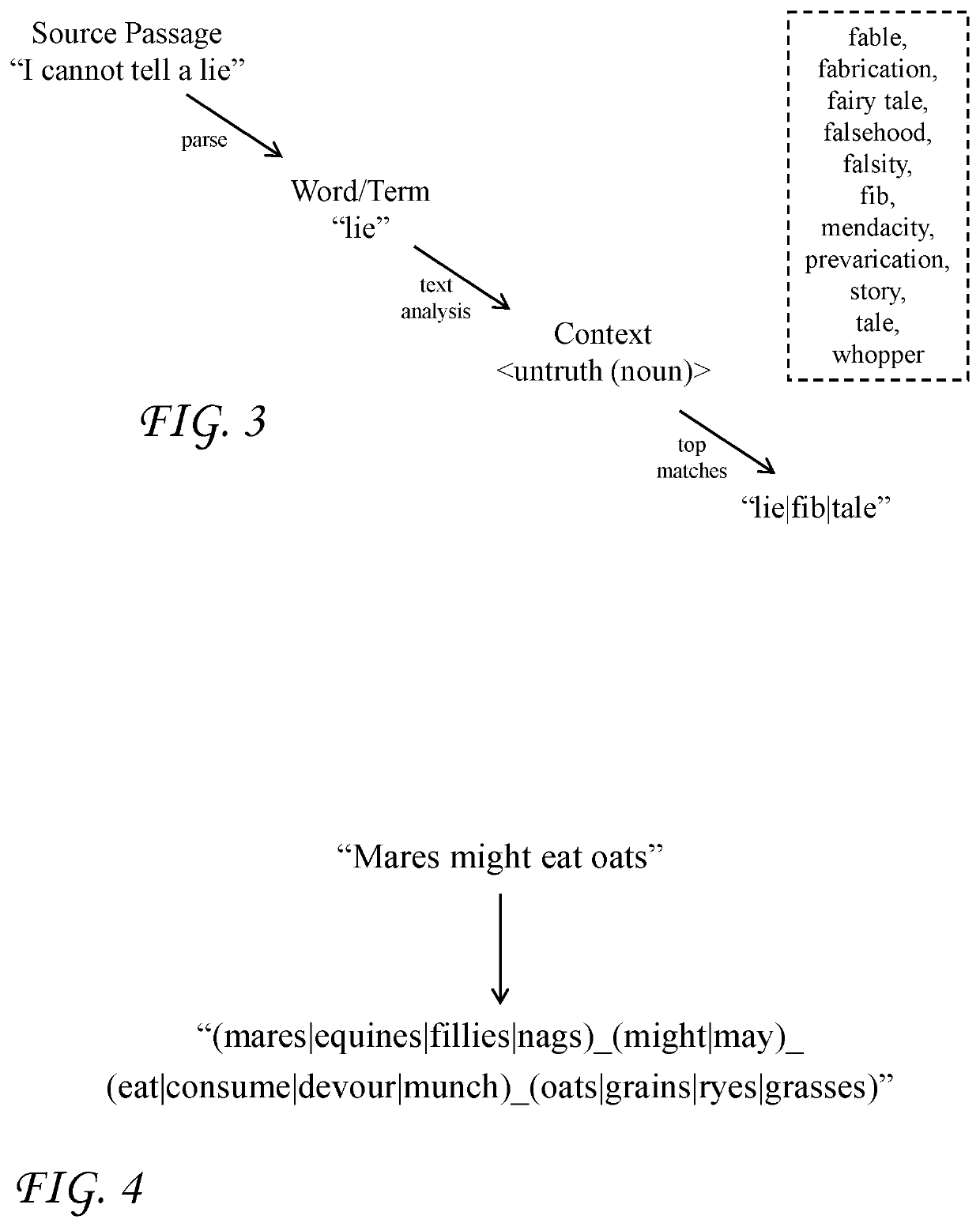Using computer-implemented analytics to determine plagiarism or heavy paraphrasing
a technology of plagiarism and analysis, applied in the field of text analysis, can solve the problems of long-standing problems such as plagiarism, inability to detect manually, and high cost, and achieve the effects of reducing the difficulty of plagiarism detection, and improving the accuracy of plagiarism detection
- Summary
- Abstract
- Description
- Claims
- Application Information
AI Technical Summary
Benefits of technology
Problems solved by technology
Method used
Image
Examples
Embodiment Construction
)
[0013]Plagiarists use many methods for copying information from a source and claiming it as their own. One method, sometimes referring to as “rogeting” (a reference to Roget's thesaurus), involves substituting a synonym for a word in a sentence, phrase or other text fragment. Currently, synonyms are not detected as potential plagiarism by plagiarism checkers. These sorts of paraphrased documents are nearly impossible to determine programmatically whether or not they have been plagiarized. Heavily paraphrased documents can thus go unnoticed by a reviewer. Take for example this excerpt regarding John Glenn:
[0014]“John Herschel Glenn Jr. (Jul. 18, 1921-Dec. 8, 2016) was a United States Marine Corps aviator, engineer, astronaut, and United States Senator from Ohio. In 1962 he became the first American to orbit the Earth, circling it three times.”
[0015]The following sentence heavily synonymizes the above:
[0016]“John Glenn Jr. was a U.S.M.C. pilot, engineer, cosmonaut and U.S. politician...
PUM
 Login to View More
Login to View More Abstract
Description
Claims
Application Information
 Login to View More
Login to View More - R&D
- Intellectual Property
- Life Sciences
- Materials
- Tech Scout
- Unparalleled Data Quality
- Higher Quality Content
- 60% Fewer Hallucinations
Browse by: Latest US Patents, China's latest patents, Technical Efficacy Thesaurus, Application Domain, Technology Topic, Popular Technical Reports.
© 2025 PatSnap. All rights reserved.Legal|Privacy policy|Modern Slavery Act Transparency Statement|Sitemap|About US| Contact US: help@patsnap.com



